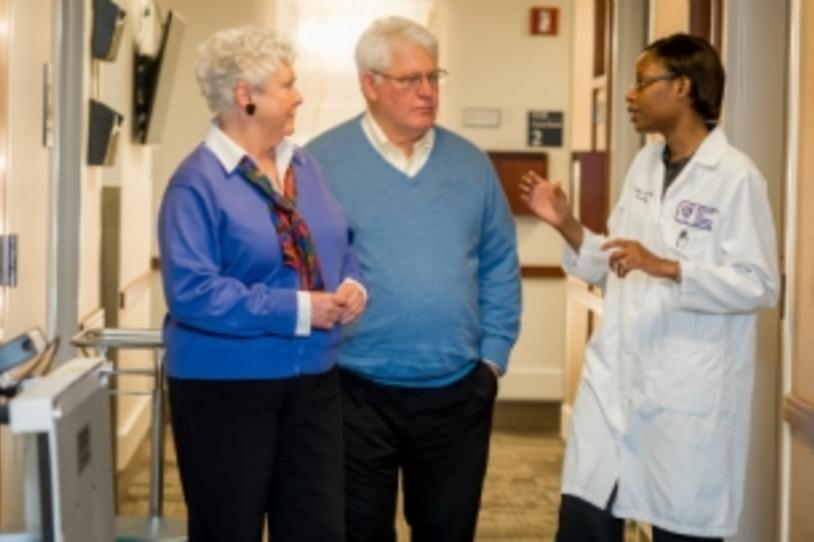
The Michael J. Fox Foundation (MJFF) announces $3 million in new grants for researchers developing innovative ways to treat gait and balance issues in people with Parkinson's disease. The eight new awards, given to teams representing four continents, support novel technologies with the potential to significantly improve people's daily lives.
"This initiative was developed to find new, noninvasive ways to address gait and balance disturbances, which can significantly impact overall mobility and quality of life for those with Parkinson's," said MJFF Associate Director Jamie Hamilton, PhD. "We listened to patients, who identified this as an area of unmet need. And we included patients as reviewers for these awards to ensure the projects we funded were practical, safe and potentially useful."
Israel Robledo, a member of MJFF's Patient Council, served as a reviewer for these projects. He explains, "The Foundation was eager to get the patient perspective on these ideas. Ken Cater (also a Patient Council member) and I looked at each project with an eye toward whether it was something we'd really use, how quickly it would become available and how much of a widespread benefit it would have for the patient community."
Gait and balance issues are one of the most challenging and under-addressed aspects of Parkinson's disease. They can result in falls, injury, loss of independence and diminished quality of life. For many patients, current medication options do not fully alleviate these symptoms.
In the spring of 2018, MJFF launched a special request for funding for "beyond-the-medicine-cabinet" ideas to treat gait and balance problems. Qualified researchers and two members of our Patient Council, a volunteer group dedicated to bringing the patient voice and perspective into our research agenda, reviewed the projects.
Descriptions of each program follows:
- A joint team from Neuroscience Research Australia, Sensoria Health Inc., Parkinson's NSW and UNSW's Graduate School of Biomedical Engineering are testing StandingTall-PD, a neuro-rehabilitation program that uses external cues to prevent freezing of gait and falls.
- Researchers at KU Leuven in Belgium and mHealth Technologies are developing the DeFOG system, which is a smartphone-based wearable system that delivers personalized cueing (a type of prompt) to treat freezing of gait.
- A study from teams at Ohio State University and Honda Walking Assist Device is using the light, wearable robotic device to help people take bigger steps and walk more easily. The program includes training from a physical therapist.
- Protective steps (short, quick movements after a loss of balance) may reduce the chances of a fall. Scientists at Arizona State University are evaluating whether a protective step training program for people with Parkinson's can reduce or prevent falls in the home.
- A group from Virginia Commonwealth University and PDVibe2 is assessing whether vibration therapy applied to the feet can reduce freezing of gait. The therapy is delivered via a lightweight, portable, in-shoe device.
- A team from Leiden University Medical Center is working with Microsoft HoloLens on Holocue, which delivers 2-D and 3-D cues via a mixed-reality headset. Cues (such as stripes on the ground) can help prevent freezing of gait and subsequent falls in people with Parkinson's.
- Researchers from Medisch Spectrum Twente and Radboud UMC are working together to develop vibrating socks. These are a novel cueing device designed to provide tactile stimuli to reduce freezing of gait in patients with Parkinson's without being visible to bystanders.
- A group from the Rehabilitation Institute of Chicago is testing a smart, wearable airbag system to prevent injury in Parkinson's patients at risk of falls. The system is designed to accurately predict falls and quickly inflate to reduce fractures and other injuries.
For more information on recent MJFF-supported projects, visit our funded grants page.